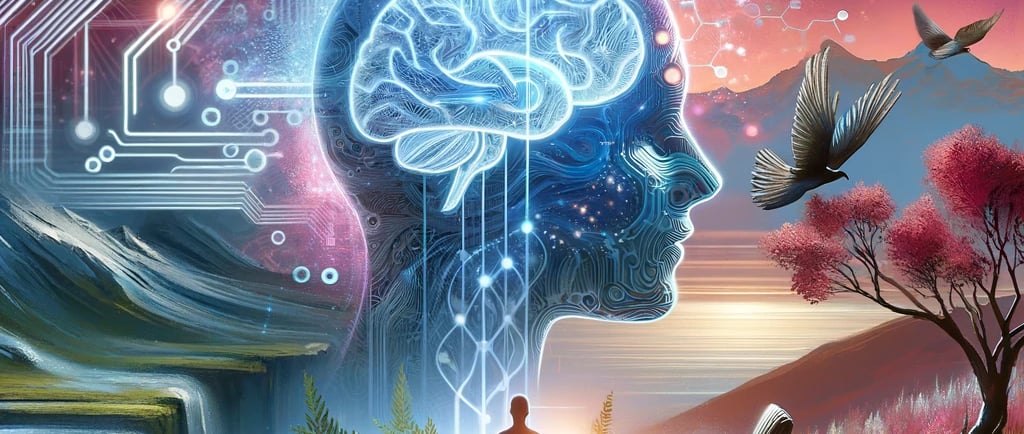AI Meets the Mind: Unraveling the Impact of Artificial Intelligence on Mental Health
This insightful article explores the intricate relationship between artificial intelligence and mental health, discussing how AI is revolutionizing mental health care, its potential benefits, challenges, and ethical considerations.
Faheem Hassan
1/12/20242 min read


The fusion of artificial intelligence (AI) and mental health care is opening new frontiers in healthcare. AI's potential to transform mental health services is vast, yet it raises essential questions and challenges that need addressing.
AI's Role in Mental Health: Opportunities and Innovations AI technologies are revolutionizing mental health care in several ways:
Early Detection and Diagnosis: AI algorithms can analyze speech patterns, facial expressions, and social media activity to detect early signs of mental health issues like depression or anxiety.
Personalized Treatment Plans: AI can assist in creating customized treatment plans based on individual patient data, enhancing the effectiveness of mental health interventions.
Virtual Therapists and Chatbots: AI-powered chatbots and virtual therapists provide round-the-clock support, making mental health care more accessible.
Challenges and Ethical Considerations However, the integration of AI in mental health care is not without its challenges:
Privacy and Data Security: Handling sensitive mental health data requires robust security measures to protect patient privacy.
Risk of Misdiagnosis: AI systems are only as good as the data they are trained on, and there's a risk of misdiagnosis, especially in complex mental health cases.
Human Touch in Therapy: AI cannot fully replicate the empathetic connection crucial in therapy. Balancing technology and human interaction is vital.
Bias in AI Systems: If AI systems are trained on limited or biased data sets, they might perpetuate these biases in diagnosis and treatment.
The Future of AI in Mental Health Care Looking ahead, the role of AI in mental health presents both opportunities and responsibilities:
Continued Innovation: Ongoing research and development are essential to improve the accuracy and effectiveness of AI in mental health care.
Addressing Ethical Concerns: Establishing ethical guidelines for AI use in mental health is crucial to ensure respectful and safe implementation.
Collaboration Between AI Experts and Mental Health Professionals: Collaboration can harness the strengths of both fields, leading to more effective and compassionate care.
Conclusion AI's intersection with mental health is a journey of immense potential and significant responsibility. By navigating its challenges thoughtfully and ethically, AI can profoundly impact mental health care, offering hope and support to those who need it most.
